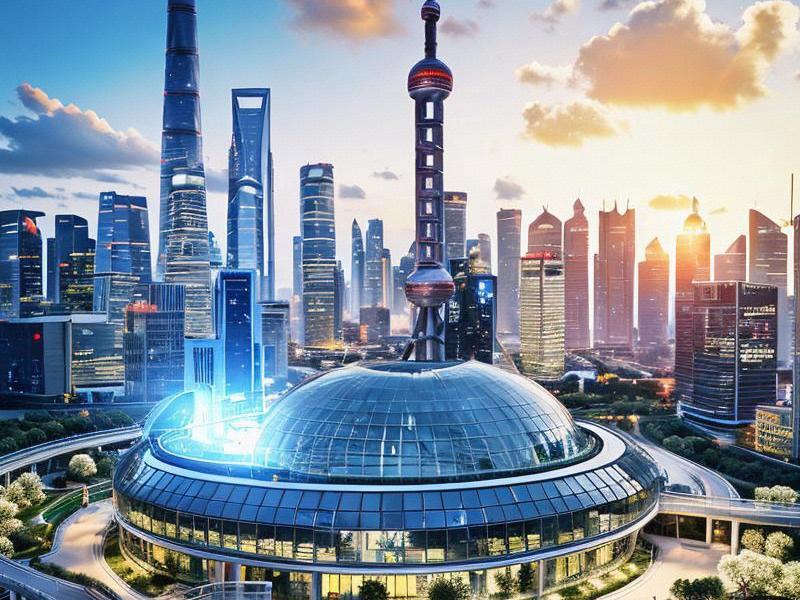This article delves into Shanghai's transformation into a global innovation hub, highlighting its technological advancements, urban development strategies, and increasing global influence.

Shanghai, the bustling metropolis on the banks of the Huangpu River, has long been a symbol of China's economic prowess. However, in recent years, it has been steadily carving out a new identity as a global innovation hub. This transformation is not just about economic growth but also about fostering a culture of innovation, embracing cutting-edge technologies, and enhancing the quality of urban life.
One of the key drivers behind Shanghai's rise as an innovation hub is its strategic focus on technology and digital transformation. The city has invested heavily in research and development, particularly in areas such as artificial intelligence (AI), big data, and the Internet of Things (IoT). Shanghai's government has implemented various initiatives to support tech startups and innovation-driven enterprises. For instance, the establishment of the Zhangjiang Hi-Tech Park has provided a fertile ground for tech companies to thrive. This park houses numerous high-tech firms, research institutions, and incubators, fostering a collaborative ecosystem that accelerates innovation.
The city's commitment to technological advancement is also evident in its smart city initiatives. Shanghai has been at the forefront of integrating digital technologies into urban management and public services. Smart traffic systems, digital payment solutions, and intelligent public transportation networks are just a few examples of how the city is leveraging technology to enhance the quality of life for its residents. The launch of the "One Card Pass" system, which integrates multiple public services into a single card, is a testament to Shanghai's efforts in creating a more convenient and efficient urban environment.
In addition to technology, Shanghai's urban development strategies have played a crucial role in its transformation. The city has undergone significant changes in its urban landscape, with a focus on sustainable development and green initiatives. The Bund, once a symbol of colonial Shanghai, has been revitalized into a modern financial district, complete with iconic skyscrapers and waterfront promenades. Similarly, the Pudong area, which was once a rural region, has transformed into a global financial center, home to the Shanghai Tower, the tallest building in China.
爱上海最新论坛
Shanghai's urban planning efforts also emphasize sustainability and environmental protection. The city has implemented various green initiatives, such as the construction of energy-efficient buildings, the promotion of public transportation, and the development of urban green spaces. The Shanghai Green City Action Plan aims to increase the city's green coverage and reduce carbon emissions, making it a more livable and sustainable place.
The increasing global influence of Shanghai is another aspect of its journey to becoming an innovation hub. The city has actively engaged in international collaborations and partnerships, positioning itself as a bridge between China and the world. Shanghai's role in hosting major international events, such as the World Expo and the中国国际进口博览会 (China International Import Expo, or CIIE), has further enhanced its global profile. These events provide a platform for showcasing cutting-edge technologies, fostering international trade, and promoting cultural exchanges.
The CIIE, in particular, has become a significant platform for global trade and innovation. As the world's first national-level expo focused on imports, the CIIE attracts numerous international companies and brands, highlighting Shanghai's role as a gateway for global commerce. The expo not only facilitates trade but also serves as a venue for showcasing the latest innovations and technologies from around the world.
爱上海同城419
Shanghai's educational institutions and research centers have also contributed to its status as an innovation hub. The city is home to prestigious universities and research institutes, such as Fudan University, Tongji University, and the Shanghai Jiao Tong University. These institutions are at the forefront of research and development in various fields, including science, technology, engineering, and medicine. They play a crucial role in nurturing talent and driving innovation, both within the city and beyond.
The city's vibrant startup ecosystem further underscores its commitment to fostering innovation. Shanghai has become a magnet for tech startups, attracting entrepreneurs and investors from around the world. The city's supportive policies, including tax incentives, funding support, and access to resources, have created a conducive environment for startups to flourish. Incubators and accelerators, such as the ShanghaiTech University Entrepreneurship Center and the 500 Startups China program, provide essential support to early-stage startups, helping them scale and succeed.
Cultural exchange and diversity are also integral to Shanghai's transformation into an innovation hub. The city's rich history and cosmopolitan culture make it a melting pot of different ideas and perspectives. This cultural diversity fosters creativity and innovation, as people from various backgrounds come together to collaborate and share their expertise. Shanghai's art scene, with its galleries, theaters, and music festivals, reflects this vibrant cultural tapestry and contributes to the city's innovative spirit.
上海喝茶群vx
However, Shanghai's journey to becoming a global innovation hub is not without challenges. The rapid pace of urbanization and economic growth has brought about issues such as housing shortages, traffic congestion, and environmental concerns. Addressing these challenges requires sustainable and inclusive urban development strategies that balance economic growth with social and environmental considerations.
In conclusion, Shanghai's transformation into a global innovation hub is a multifaceted process that involves technological advancements, urban development, international collaborations, and cultural exchange. The city's strategic focus on innovation, coupled with its supportive policies and vibrant ecosystem, has positioned it as a leader in the global innovation landscape. As Shanghai continues on this journey, it is poised to play a pivotal role in shaping the future of innovation and urban development worldwide.